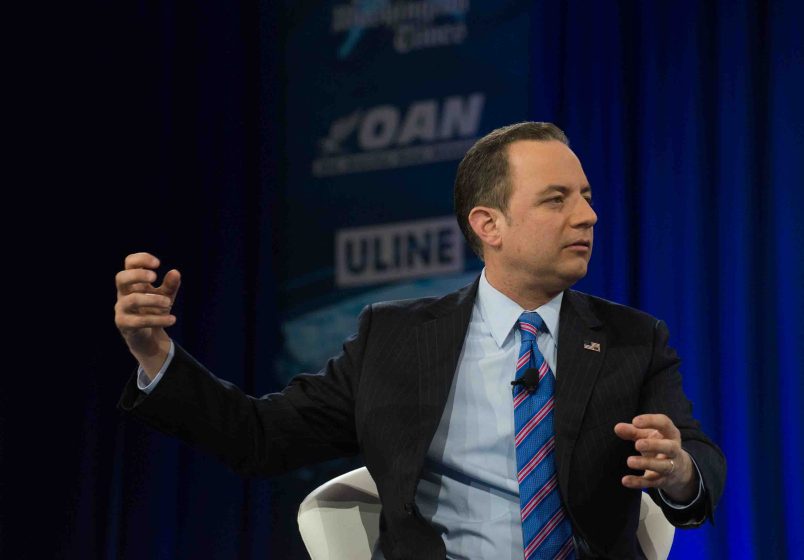The federal judge overseeing a legal case involving a decades-old consent decree limiting the Republican National Committee’s involvement in so-called “ballot security” initiatives sided with the RNC Saturday.
U.S. District Judge John Michael Vazquez denied the Democratic National Committee’s requests to hold the Republican in contempt of court for allegedly violating the decree. He also denied the DNC’s request to place an injunction on the RNC’s alleged ballot security activities. Finally, he denied for now its request to extend by eight years the length of consent decree, which otherwise expires December 2017.
The DNC had brought the legal action last month, with accusations that the RNC was assisting the Donald Trump campaign’s poll watcher efforts. The RNC denied any collaboration with the Trump campaign on ballot security initiatives and said it had followed the decree.
The judge said that the Democrats did not provide enough evidence to prove that Trump was acting as an “agent” of the RNC, as the decree spells out that it applies only to the RNC and its agents. (The activities of state Republican parties — with the exception of New Jersey’s — are not covered by the decree, nor are individual candidates or campaigns if they are acting independently of the RNC.)
“The Court views the actual issue in this case as whether the RNC is working in concert with the Trump Campaign on voter fraud programs,” the opinion said.
The judge rebutted arguments put forward by the RNC that comments made by Trump campaign officials including his running mate Mike Pence and campaign manager Kellyanne Conway suggesting RNC coordination on voter fraud prevention — comments they later said were mistaken — shouldn’t be considered in the case. However, the court said that “the discovery thus far produced
by the RNC reflects that it is not working with the Trump Campaign on ballot security measures.”
The Democrats had also pointed to statements made by state party chairs in Michigan and Pennsylvania — officials who are also members of the RNC — laying out plans to take on ballot security efforts.
“The Court finds, as a matter of law, that neither Ms. Romney McDaniel nor Mr. Gleason are subject to the Consent Decree if they are acting solely in their capacity as state party chairs,” the judge said.
The opinion lent some credence to affidavits filed in the case by Democratic poll observers serving in Nevada, who said they met fellow observers who described themselves to be working the RNC. However, the Judge Vazquez said the DNC had not provided enough evidence to warrant an injunction proving they were engaging in the specific polling place activities the consent decree bars the RNC from participating in.
“At best, the DNC shows a possibility, not a probability, that the poll observers’ activities were related to voter fraud,” the opinion said.
The court did say, however, that it is willing to return to the question after the election of whether the decree was violated, and thus should be extended. He added that that Democrats are free to seek more discovery.
A footnote in the opinion also raised concerns, regardless of the RNC’s involvement, about the campaign rhetoric encouraging poll watching.

Angelo Genova, a lawyer for the DNC in the case from the firm Genova Burns, said he was “disappointed” in Saturday’s decision. He added, however, that he found “comfort in knowing that meaningful discovery may be pursued afterward to establish that this 30 plus year consent order should remain viable in the fight against RNC inspired voter suppression efforts.”
Read the judge’s opinion below:










